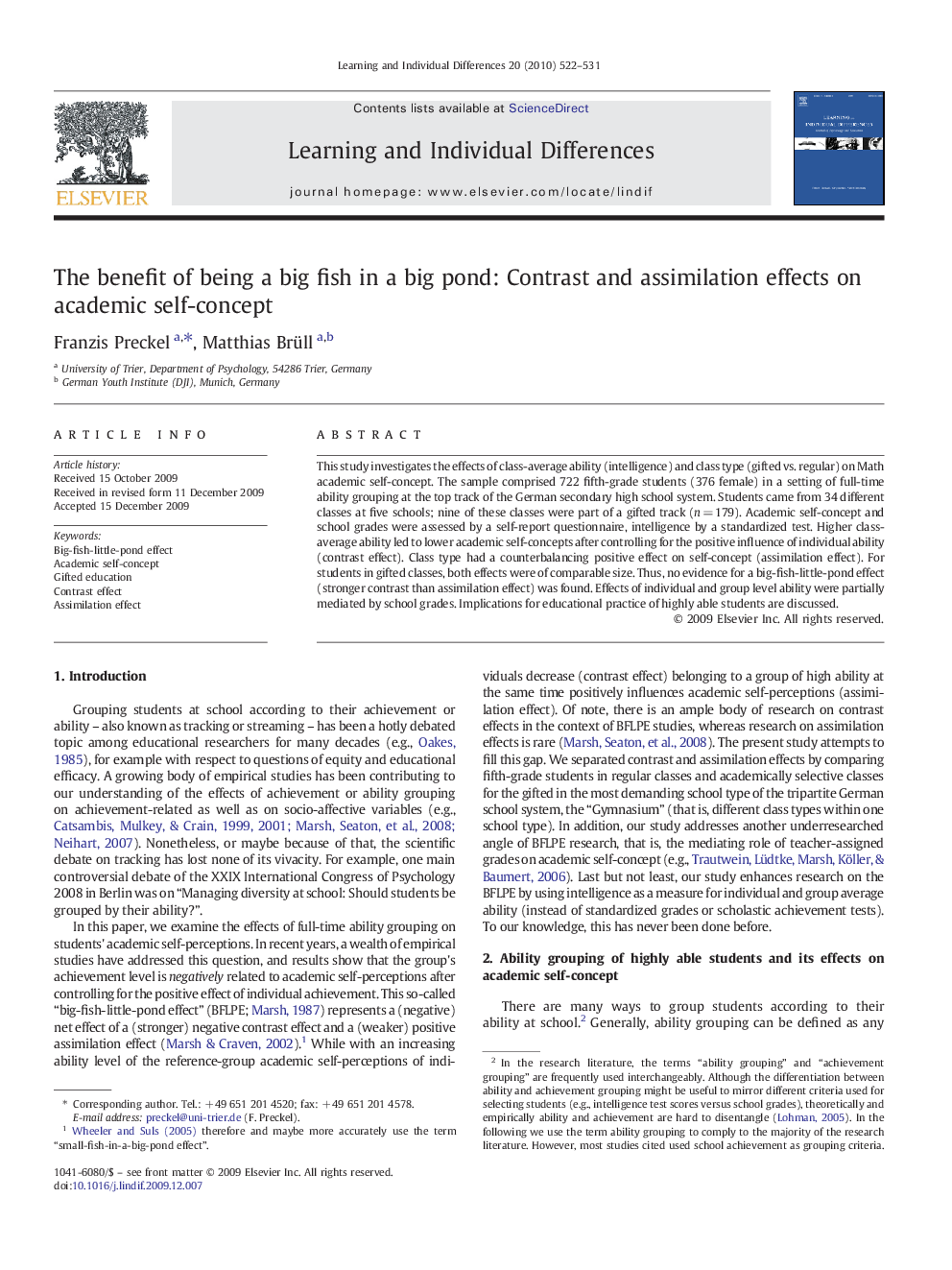| Article ID | Journal | Published Year | Pages | File Type |
|---|---|---|---|---|
| 365063 | Learning and Individual Differences | 2010 | 10 Pages |
This study investigates the effects of class-average ability (intelligence) and class type (gifted vs. regular) on Math academic self-concept. The sample comprised 722 fifth-grade students (376 female) in a setting of full-time ability grouping at the top track of the German secondary high school system. Students came from 34 different classes at five schools; nine of these classes were part of a gifted track (n = 179). Academic self-concept and school grades were assessed by a self-report questionnaire, intelligence by a standardized test. Higher class-average ability led to lower academic self-concepts after controlling for the positive influence of individual ability (contrast effect). Class type had a counterbalancing positive effect on self-concept (assimilation effect). For students in gifted classes, both effects were of comparable size. Thus, no evidence for a big-fish-little-pond effect (stronger contrast than assimilation effect) was found. Effects of individual and group level ability were partially mediated by school grades. Implications for educational practice of highly able students are discussed.
